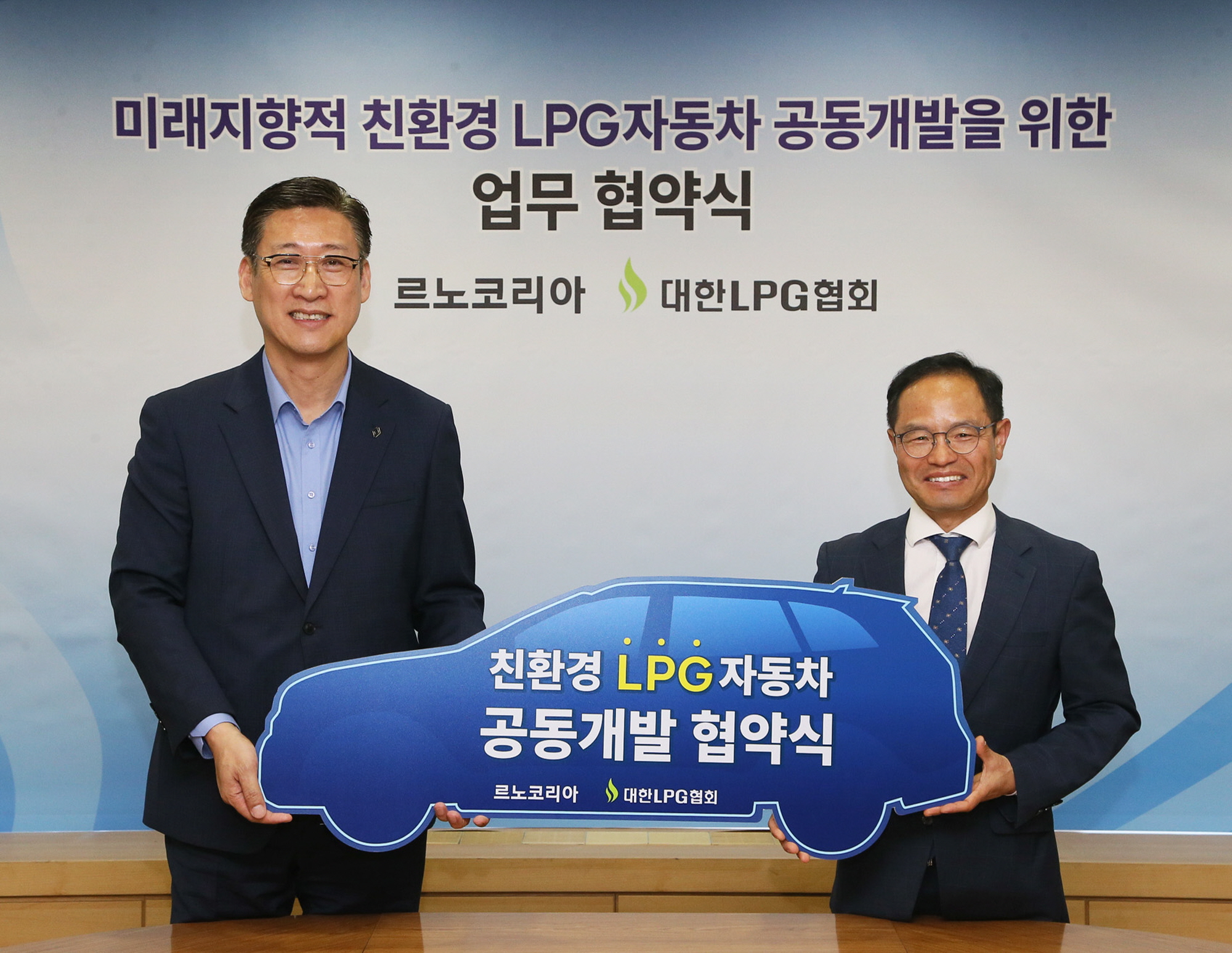
On the 2nd, Renault Korea held a business agreement signing ceremony for the joint development of eco-friendly LPG vehicles with the Korea LPG Association at Renault Technology Korea (formerly Renault Korea Central Research Institute) in Yongin, Gyeonggi Province. According to the agreement, the two parties will begin developing technology for passenger cars equipped with LPG direct injection engines.
Renault Korea and the Korea LPG Association agreed to enhance the eco-friendliness of LPG vehicles by applying direct injection technology to LPG passenger models, resulting in significant reductions in fine dust and greenhouse gas emissions, while also creating a basis for expanded demand. They will also actively promote policies and promotional projects for mutual development.
The LPG direct injection (LPDi) engine is a fourth-generation system that enhances efficiency by directly injecting liquid LPG into the cylinder through a high-pressure fuel pump. It significantly improves the driving performance of vehicles with increased power and torque, while also dramatically reducing harmful and greenhouse gas emissions, earning it a reputation as a more environmentally friendly LPG engine. No examples of LPG passenger vehicles equipped with next-generation direct injection engines have yet been mass-produced in South Korea.
The two parties plan to first produce a prototype test vehicle within the year, complete validation of emissions, fuel efficiency, and engine durability, before making a final decision on whether to proceed with mass production development.
In 2014, Renault Korea and the Korea LPG Association launched the first LPG vehicle equipped with a donut tank, the SM5 LPLi, after a joint research period of over two years. At that time, the donut tank significantly improved the previously perceived inconvenience of utilizing trunk space in existing LPG vehicles, garnering substantial consumer interest. Subsequently, in 2019, after the cessation of restrictions on the use of LPG vehicles, Renault Korea introduced the QM6 LPe, leading to the popularization of LPG SUVs. The QM6 LPe applied a patented mounting system to ensure the safety of passengers in the event of a rear-end collision.
Choi Seong-kyu, head of Renault Korea’s research institute, stated, “Renault Korea, which has been leading market trends with advanced products, will continue to introduce various environmentally friendly products to the market that satisfy customers, just like the case of developing passenger cars equipped with LPG direct injection engines.”
Lee Ho-jung, head of the Korea LPG Association, expressed, “The LPG direct injection passenger vehicles developed under this business agreement are expected to enhance driver satisfaction with improved power and fuel efficiency while contributing to the improvement of air quality.”
Meanwhile, Renault Korea is considering the release of a new trim of the SM6 LPe, which can also be utilized as a taxi or other commercial vehicles, to address the supply shortage situation faced by the taxi industry due to the halt in domestic production of taxi-only LPG models.
Jang Sang-keun daedusj@autodiary.kr

